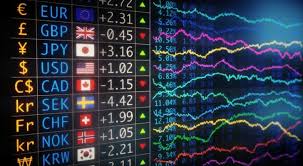
Your Comprehensive Guide to Forex Trading Brokers
If you are looking to explore the world of Forex trading, finding the right broker is one of the most crucial steps in your trading journey. The Forex trading market offers numerous opportunities, but it can also be a minefield for the unprepared. This guide will cover everything you need to know about Forex trading brokers, helping you make informed decisions and improve your trading strategies. For further insights, be sure to check out forex trading broker ex-zar.com.
Understanding Forex Trading
Forex, or foreign exchange, is the market for trading national currencies against one another. The forex market is the largest financial market in the world, with a daily trading volume exceeding $6 trillion. Traders seek to profit from changes in currency values, and this requires a Forex broker to facilitate the trading process.
What is a Forex Broker?
A Forex broker is a financial services company that provides traders access to a trading platform for buying and selling foreign currencies. Brokers serve as middlemen between retail traders and the interbank system, enabling them to trade in the forex market. They typically offer various services, including educational resources, leverage, trading tools, and customer support.
Types of Forex Brokers
There are different types of Forex brokers to cater to the diverse needs of traders. Here are the most common types:
- Market Makers: These brokers create a market for their clients by providing buy and sell prices. They profit from the spread, which is the difference between the buying and selling price.
- ECN Brokers: Electronic Communication Network (ECN) brokers allow traders to interact directly with other market participants, providing greater transparency and often better spreads.
- STP Brokers: Straight Through Processing (STP) brokers route orders directly to the liquidity providers, minimizing latency and reducing the chances of slippage.
Choosing the Right Forex Broker
When selecting a Forex broker, consider several critical factors to ensure they align with your trading style and needs:
1. Regulation
Ensure that the broker is regulated by a reputable financial authority. Regulatory bodies, such as the Financial Conduct Authority (FCA) in the UK, the Commodity Futures Trading Commission (CFTC) in the USA, and the Australian Securities and Investments Commission (ASIC), help ensure that brokers adhere to strict guidelines that protect traders.
2. Trading Platform
The trading platform is your gateway to the Forex market, so it’s essential to choose a user-friendly and reliable platform. Popular platforms include MetaTrader 4 (MT4), MetaTrader 5 (MT5), and proprietary platforms offered by brokers.
3. Spreads and Commissions

Different brokers offer different spreads and commission structures. Choosing a broker with competitive spreads can significantly impact your overall profitability, especially if you are a frequent trader.
4. Customer Support
Good customer support can make a significant difference, especially for novice traders needing immediate assistance. Look for brokers that offer multiple channels of communication and favorable operating hours.
5. Deposit and Withdrawal Methods
Ensure that the broker offers convenient deposit and withdrawal methods. Check if they support your preferred banking options and whether they have any fees associated with transactions.
Forex Trading Strategies
Once you have chosen a Forex broker, it’s time to develop your trading strategy. Effective trading strategies can help you navigate the market and maximize your profits. Here are a few popular strategies:
1. Scalping
Scalping is a short-term strategy that involves making numerous trades throughout the day to capture small price movements. Scalpers rely on high leverage and tight spreads for success.
2. Day Trading
Day traders open and close trades within the same day, looking to profit from intraday price movements. This strategy requires a keen understanding of market trends and technical analysis.
3. Swing Trading
Swing traders hold positions for several days or weeks, capitalizing on larger price movements. This approach requires a solid grasp of market fundamentals and can be less stressful than day trading.
4. Position Trading
Position trading is a long-term strategy that involves holding trades for extended periods, relying on fundamental analysis and major market trends. This style may suit traders with less time to monitor the markets.
Conclusion
Choosing the right Forex trading broker is a critical step toward successful trading. By considering regulatory compliance, trading platforms, costs, and customer support, you can find a broker that meets your needs. Combining this with a well-designed trading strategy will lay a strong foundation for your Forex trading journey. Equip yourself with knowledge, stay disciplined, and continuously work on developing your skills to enhance your trading performance.
Leave a Reply